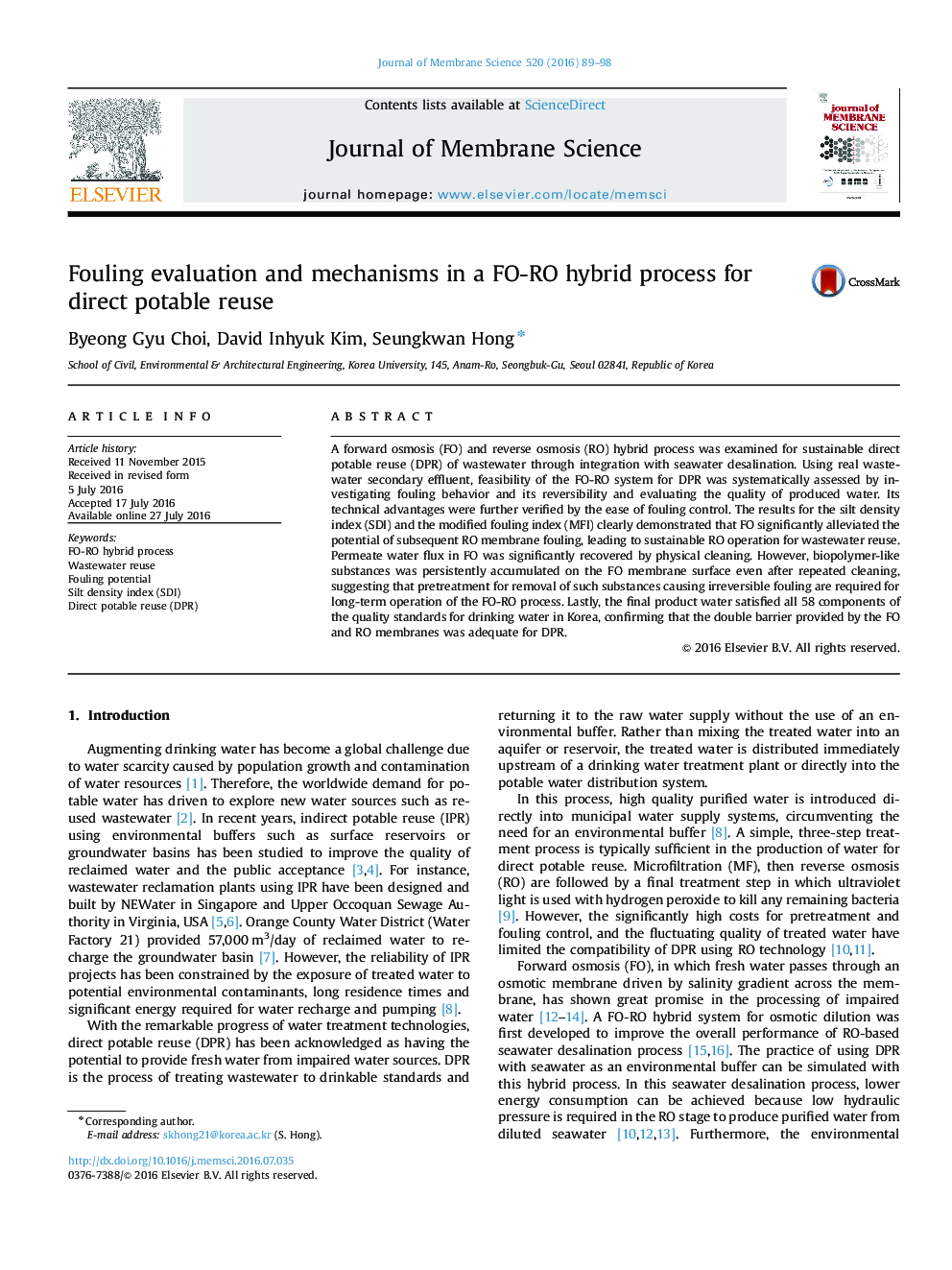| Article ID | Journal | Published Year | Pages | File Type |
|---|---|---|---|---|
| 632148 | Journal of Membrane Science | 2016 | 10 Pages |
•A FO-RO hybrid was examined for the sustainable direct potable reuse of wastewater.•FO significantly alleviated membrane fouling on the subsequent RO.•FO flux declined due to fouling was largely recovered by physical cleaning.•Biopolymers accumulated, leading to irreversible fouling on the FO membrane.•Treated final water satisfied all 58 drinking water quality standards in Korea.
A forward osmosis (FO) and reverse osmosis (RO) hybrid process was examined for sustainable direct potable reuse (DPR) of wastewater through integration with seawater desalination. Using real wastewater secondary effluent, feasibility of the FO-RO system for DPR was systematically assessed by investigating fouling behavior and its reversibility and evaluating the quality of produced water. Its technical advantages were further verified by the ease of fouling control. The results for the silt density index (SDI) and the modified fouling index (MFI) clearly demonstrated that FO significantly alleviated the potential of subsequent RO membrane fouling, leading to sustainable RO operation for wastewater reuse. Permeate water flux in FO was significantly recovered by physical cleaning. However, biopolymer-like substances was persistently accumulated on the FO membrane surface even after repeated cleaning, suggesting that pretreatment for removal of such substances causing irreversible fouling are required for long-term operation of the FO-RO process. Lastly, the final product water satisfied all 58 components of the quality standards for drinking water in Korea, confirming that the double barrier provided by the FO and RO membranes was adequate for DPR.
Graphical abstractFigure optionsDownload full-size imageDownload high-quality image (156 K)Download as PowerPoint slide
